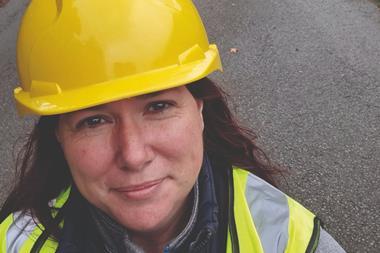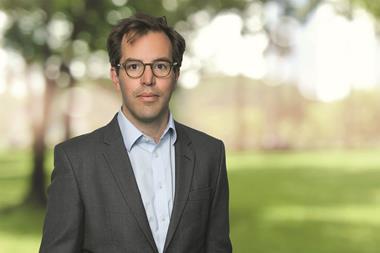As the property industry travels en masse to Cannes to attend Mipim, Avison Young’s Stephen Cowperthwaite offers his views on the conference theme ‘Better places, greater impact, stronger business’.

Innovation Districts and Knowledge Quarters have become a key driving force behind economic growth and employment, fostering innovation, employment and skills growth across multiple sectors. However, not everyone is reaping the rewards. The benefits of the economic impact that innovation creates can often remain exclusive to select demographics, leaving many communities disconnected from the innovation happening on their doorstep.
As this year’s Mipim begins, we’re working with Connected Places Catapult, to explore the importance of inclusive innovation: promoting inclusion in the design, delivery, and diffusion of innovation to ensure the benefits are shared. We’re looking at what it really means to promote an inclusive environment, how the public and private sectors influence innovation-led districts and places, and the steps that need to be taken to create sustainable, local economies.
With more organisations moving away from science parks on the outskirts of towns and into urban city centres with dense populations, often adjacent to areas with a backdrop of social inequality, the importance of building and investing in inclusive and sustainable innovation economies cannot be overstated.
From designing spaces that are attractive enough to lure workers back to the office post-pandemic, to establishing long-standing relationships with the wider community and providing opportunity, occupiers and landlords must work together to rise to the challenge of inclusive innovation in our cities.
Organisations are starting to see the importance of forming lasting, positive relationships with the communities in which they work. With a significant focus on ESG, many businesses are shifting their priorities, looking to the impact their spaces have on the environment, and how they can promote social value, whether through reducing their carbon footprint, using local businesses for supplies or support, or offering their spaces to local schools to host homework clubs after hours or at weekends.

Paddington Village, for example, part of Knowledge Quarter Liverpool, is next to Kensington, one of the most deprived areas in the country, and has focussed its programmes on supporting young people in the community through raising aspiration, skills and employability and health outcomes to directly impact the local area.
Through greater understanding of the opportunities, we see spaces being used in innovative ways to extend footfall, which is only a positive thing when it comes to building value in an asset or area for the long term. Take Baltic Creative CIC in Liverpool, home to hundreds of creative and digital businesses in the city centre. Their campus café, where people work during the week, turns into an events space hosting weddings, crafts and arts fairs at the weekend. Better revenue means increasing rents and an amenity that people connect to in various ways.
Part of understanding the breadth of our communities is understanding the breadth of our people. Though for many, hybrid and home working has become a blessing, it is important to remember not everyone has the privilege to work from a home office.
Occupiers have a growing understanding of their role in offering safe, innovative spaces where employees want to work, spend time and ultimately feel included. For others, it might simply be about having that option of physical contact, face-to-face conversations and social interaction.
We also need to think about the workforce of tomorrow. At Sony’s Liverpool office, for example, the company makes a conscious effort to invite young local people in to see what a working environment is really like, challenging misconceptions, speaking to them in a language they understand to get them excited about the opportunities that exist on their doorstep.
As we look to the next generation, the conversation has shifted to how we invest in attracting and retaining talent in our cities. We know they want more from their spaces, so the culture and places we create must draw them in and excite them.
Bringing teams together to solve problems is something business leaders are challenged with in every sector, but particularly where innovation is concerned. Putting small businesses and incubators together in science parks fuels innovation opportunity, and we can’t forget about travel connectivity too. Thinking about bus routes and travel reform in cities to connect communities with business districts is also a public private sector opportunity to bring about positive change and inclusivity.
As our inclusive innovation economy continues to mature, there are many approaches that need to be tried and tested, but each step is as important as the last, and as soon as we start to work together and create some best practice that can be shared, we will start to see the transformative effects.
Stephen Cowperthwaite is managing director for Liverpool at Avison Young
































No comments yet